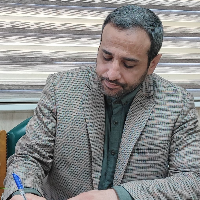Explaining the Principles of Philosophical Education Based on Allameh Tabatabai's Understanding of Philosophy
Philosophical education is one of the important fields of education in the contemporary world; however, the capacity of Islamic philosophy and the views of Muslim philosophers have been underused in this field of education, and generally, under the influence of Western philosophies, the principles and methods are prescribed for the philosophical education of the young generation. Allameh Tabatabai’s perception of philosophy among Muslim philosophers has novel nuances and characteristics that, in general, has a good capacity to explain the principles of philosophical education. What are the characteristics of philosophy from Allameh’s point of view? And what is the most important principles of philosophical education based on it? These are the two main questions of this research. The concept analysis method has been used to explain Allameh’s understanding of philosophy, and the inferential method has been used to obtain the principles of philosophical education based on it. Ten principles of philosophical education resulting from this research include: moving towards Intellectual understanding with others, truth-seeking and measurement of truth and idea, holism, etiology, theology, monotheistic coherence, rejection of uncertain methods in philosophy, ontological presence of philosophy in sciences, and philosophizing in beliefs and self-purification.
-
clarify the relationship between knowledge and religion with respect to the comments of allameh tabataba'i, and it's implications in the formulation of teaching methods
Akbar Rahnama, Mohammad Hasan Mirza Mohammadi
Quarterly Journal of New Thoughts on Education,



